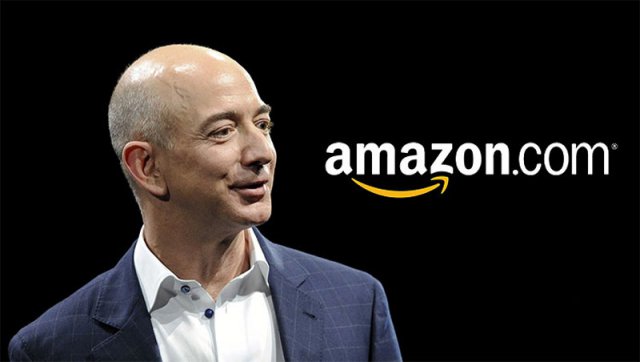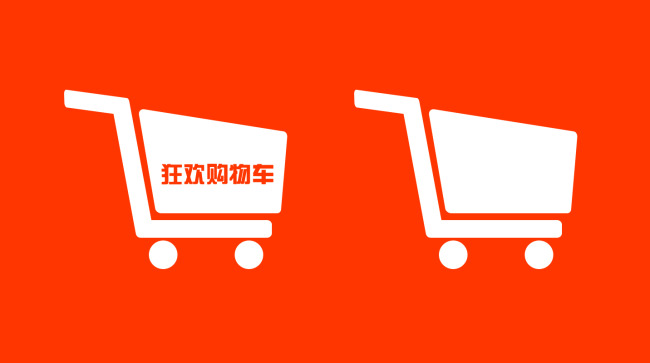Recently, Amazon has made a big news. In order to expand its business and squeeze the living space of physical retail, Amazon plans to launch a new offline supermarket, Amazon Go in four years.
Amazon Go's shopping system can use machine learning, computer vision, and artificial intelligence to enable customers to avoid queuing or checking out. If you see the product you want, just take it home. Amazon employees are currently conducting internal testing, and if the trial operation is successful, it will be open to the public next year.

My brother is amazing. Although the theft and privacy leaks are questionable, Amazon Go is still very cool, especially for fast-paced urban people, which can avoid boring queues and is attractive enough.
A few years ago, e-commerce and physical businesses still looked like they were alive and to the death, but after a few years of war, e-commerce giants also understood that physical stores could not disappear, but would only upgrade their form under the urging of e-commerce. In essence, e-commerce and physical stores are both the same thing: no one will definitely kill anyone for the products they need. Their future will definitely be complementary rather than mutually competing.
Starting with Jack Ma’s proposal of new retail (highly compatible with online, offline and logistics), e-commerce giants began to deploy offline, striving to seize both hands and be strong both hands.
After a few years of reading, you will find that e-commerce actually follows basic business logic and has not changed due to the Internet:
1. More accurate products, not richer
Because of the infiniteness of the "shelf" of the Internet, many merchants are obsessed with the richness of goods, allowing consumers to find everything they want, but the actual situation is:
1) You cannot provide everything consumers want, not only because there are too many products, you cannot find all the products consumers need, but also because you do not have enough cost to achieve it.
2) Internet "shelf" is not zero cost, and consumers have limited attention, so you can only let them see a small part of the products.
3) Unlimited products actually increase the cost of choice for consumers. In the Internet era, time costs are high, and it is unfriendly to make consumers spend a lot of time choosing. This is also the reason why a large number of vertical e-commerce, internet celebrities, and experts have appeared in the role of "screening and shopping guide".
4) The only need for consumers is to find what they want, not what you have here.
2. More suitable service is not more extreme
It seems that everyone is talking about ultimate service, but how many people really believe in this kind of thing?
1) Services are costly. The wool comes from the sheep, and the service cost increases, so naturally we have to make up for it from other places of the consumer. After a long time, consumers are not stupid.
2) Excessive service will increase consumer expectations and will put the buying and selling relationship in an abnormal state, and contradictions will ultimately be inevitable.
3) Your service is not always something consumers like. Excessive service will scare away consumers.
4) In fact, most consumers have very simple requirements and do not need your ultimate service. Just meet your basic needs.
3. More comfortable purchases, not faster
Just like Amazon launching Amazon Go targeting customers who do not want to queue up for a long time, making shopping more comfortable and making shopping more convenient is the king. Some merchants have made mistakes in security by pursuing convenience of payments, which is actually a misunderstanding. Just like logistics, fast is the foundation, but fast is not the whole.
4. A more reasonable price, not cheaper
High prices are never the key, the key is to make consumers feel worthwhile. This is not only a reflection of the value of the product in price, but also a psychological state of consumers. Some merchants pursue low prices too much, but ignore that cheapness is never a way to make money, and cheapness cannot attract truly valuable buyers.
5. A closer brand is not a higher-end one
At the beginning of the business society, consumers pursue practicality and big brands (trustworthy), but in the Internet era, consumption upgrading and overproduction are coming one after another. "What kind of things are matched with me", "What kind of things are matched with me in the price range, which thing is more suitable to choose", and "What kind of things are touching me" have become the focus of consumers' shopping choices. Brands that only pursue high-end and do not approach consumers are not energetic. Don’t tell me any luxury goods. Other customers are rich people, why do you come to the loser?
E-commerce kills physical stores and physical stores overturn e-commerce are all false propositions. After all, these are all different ways of resource allocation, each with its advantages and disadvantages. Only by integrating and learning from each other can we make progress together. In terms of customer experience alone, e-commerce is really not as good as physical stores. We e-commerce people should not make strange noises by embracing the advantages of e-commerce, but constantly learning and making up for our shortcomings.
Thank you for your attention and support to Laogao Crown Club . Please indicate the source for reprinting by Xuanming Network www.shxuanming.net



![#Laogao E-commerce Newsletter# [E-commerce Evening News on April 22]](/update/1619084583l979251094.jpg)



 EN
EN CN
CN
